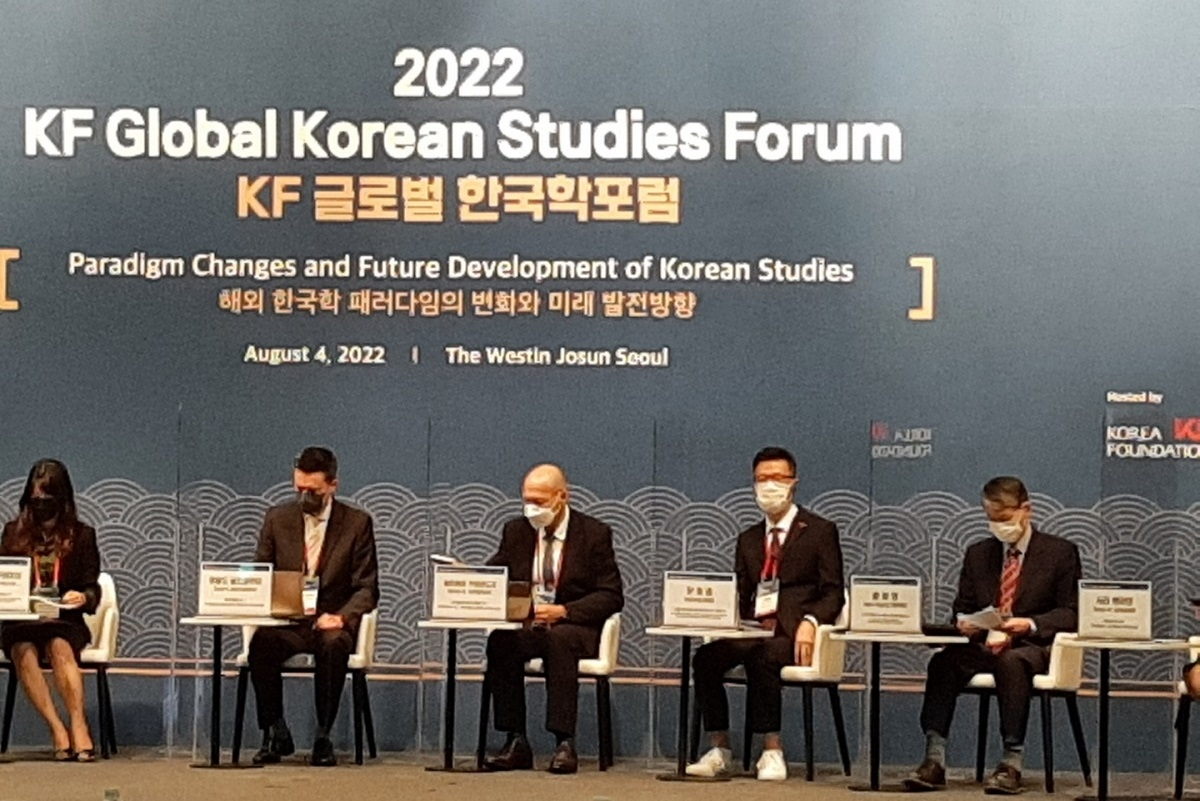St Petersburg University takes part in the Global Korean Studies Forum in Seoul

On 4 August, the 2022 KF Global Korean Studies Forum was held in Seoul. It was organised by the Korea Foundation to mark the organisation’s 30th anniversary.
The forum was attended by representatives of leading higher education institutions from around the world: the Americas, Africa, Australia, Europe, and Asia. The Russian Federation was represented by Professor Sergei Kurbanov, Head of the Department of Korean Studies at St Petersburg University. He gave a presentation entitled "Progress and Prospects in Korean Studies in Russia".
At the very first meeting, Professor Kurbanov raised the issue of the concept of Korean studies and the Korean perception of this science as national rather than international; and the issue of interaction between Korean studies representatives from the Republic of Korea itself and their foreign counterparts. The discussion, initiated by the University’s professor, aroused lively interest among forum participants and did not stop until the end of the forum.
The Korea Foundation continues its cooperation with the Russian Federation. It supported the implementation of the Korea Corner project at St Petersburg University.
The Korea Foundation is a non-profit public diplomacy organisation established in 1991. The Foundation carries out various projects for exchange between the South Korea and foreign countries to cultivate mutual understanding.
For reference: earlier, at the end of July, Professor Sergei Kurbanov gave an open guest lecture in Korean on "Translation of Korean literature: translator’s professional qualities and basic translation techniques" at the invitation of the Literature Translation Institute of Korea (Seoul). The lecture was held in person and streamed online for students from various countries studying in the training programme for translators of Korean literature, including Russian-speaking students. After the lecture, Professor Kurbanov answered questions that touched upon general issues in translation of Korean classical and traditional literature and also more specific ones related to the representation of Korean literature in the world, the ’right’ perception of Korean history, and the like.

